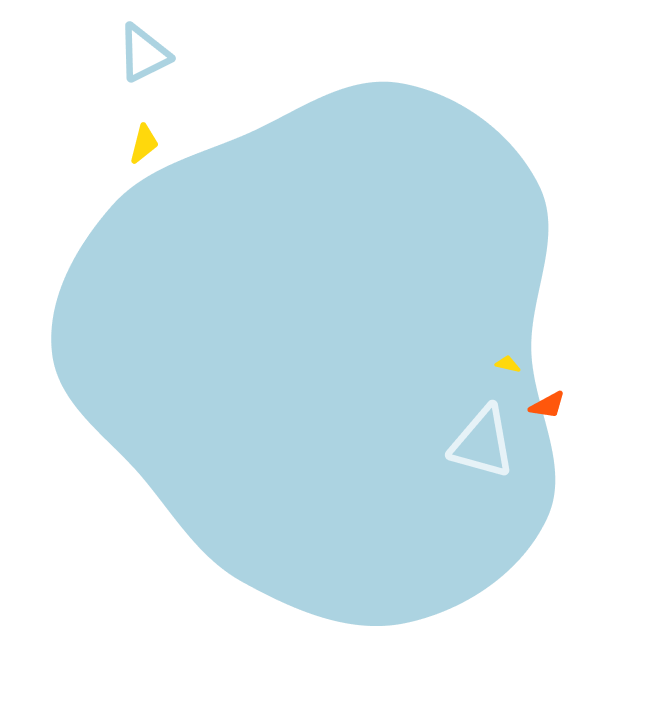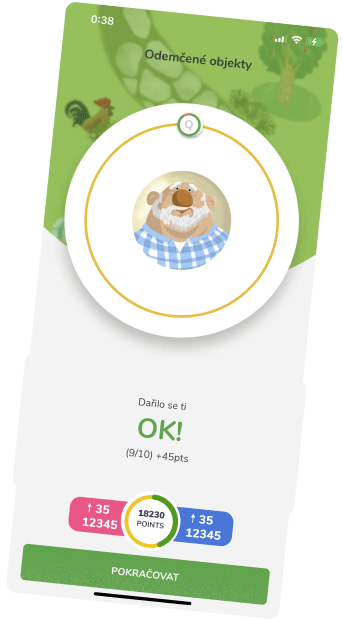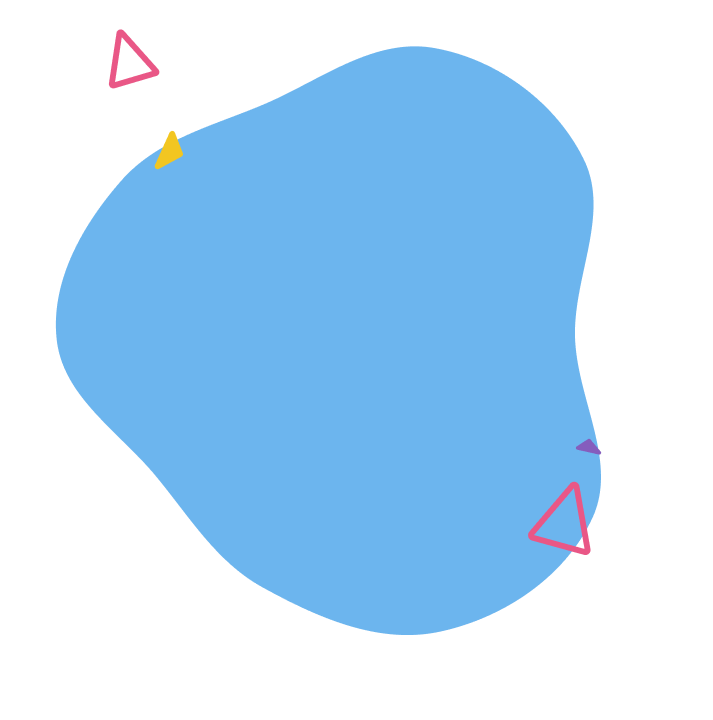Talking about Dating: 18 Popular English Phrases from Movies
Talking with your English speaking friends about dating? Are you sure you’re using the right phrases?
Imagine this scene with your English-speaking friends. One friend says: "We just didn't speak the same language" in reference to a woman he was dating. And the other friend says about her boyfriend, “We just didn't click." There’s likely to be silence if you say something like “How long were they learning the language?”
In this case, both are referring to the personal chemistry and personal values with the other person. It wasn’t about the language itself. This is from the movie "Lost in Translation" (2003), between Bob Harris (Bill Murray) and Charlotte (Scarlett Johansson) at a bar in Tokyo.
What you say depends on your understanding. Sometimes it’s not the literal translation. You won’t find these kinds of unique phrases in a grammar book or discussed openly in language classes.
Here are some of the most common dating-related phrases so you don’t misinterpret and say something inappropriate. For each one there is a movie scene reference to help you understand the context of the phrase. Experiment and use these phrases with your English speaking friends to master them and become more natural with their use.
To the Person You’re Dating
#1: “I’m ‘down’ for doing that.” Meaning: I’m okay to do that.
To All the Boys I've Loved Before (2018). Lara Jean Covey (Lana Condor) and Peter Kavinsky (Noah Centineo) talk about pretending to date each other. Peter asks Lara Jean if she's "down" with their plan. Lara Jean is confused, so Peter explains that "down" means that she's okay with their plan. Lara Jean says yes, and she and Peter kiss.
French: The similar expression would be “Je suis chaud”, meaning “I'm up for it” (but the literal translation is “I am hot”). You can use this phrase when somebody suggests a plan and you want to express your enthusiasm for doing it.
Spanish: In Spanish, you can say "Estoy dispuesto(a)" to convey the idea that you're okay or willing to do something. It literally means "I am willing."
Italian: In Italian we could say “Ci stai?” which is fairly standard but could be misunderstood as it literally means “Do you fit in there?”. A possible, confused reply might be “Dove?” (“Where?”)
Czech: “Jsem pro.”
#2: “I ‘need space’ for a while.” Meaning: I need some time apart from you for a while.
“When Harry Met Sally” (XXXX). Sally Albright (Meg Ryan) tells Harry Burns (Billy Crystal) that she needs space after they have a one-night stand. Harry is hurt and confused, but Sally explains that she just needs some time to process what happened.
French: The literal translation would have the same meaning; eg “J’ai besoin d’espace pendant un moment”.
Spanish: "Necesito espacio por un tiempo" is a direct way to convey the need for some time apart from someone.”
Italian: “Ho bisogno di un po’ di tempo da sola”, literally “I need to be alone for a while.”
Czech: “Potřebuju si dát na chvíli pauzu.”
#3: “Let's ‘go dutch’ on the bill.” Meaning: Let’s each pay for our own.
"Crazy Rich Asians" (2018). Rachel Chu (Constance Wu) and Nick Young (Henry Golding) enjoy their time in New York, where they often "go Dutch." They split the bill for their dates, which contrasts with Nick's extreme wealth to be able to pay for everything all the time.
French: There isn’t really an idiomatic expression in French for this, but the closest would be "faire moitié-moitié" (or the shortened “faire moit-moit”), where ‘moitié’ means ‘half’. Alternatively, you could speak more literally, and say “On partage” (“We share”, “we split it”), or “Payons séparément aujourd'hui” (“Let's pay separately today”).
Spanish: "Vamos a medias" or "Vamos a partes iguales." Both of these phrases convey the idea that each person will pay for their own share.
Italian: In Italian, we say “facciamo alla romana” (“let’s do as the Romans”, as in “people from Rome”, not the actual ancient Romans).
Czech: “Zaplatíme každý zvlášť. Jedem každej za sebe.”
#4: “Let’s just ‘Netflix and chill’.” Meaning: Just watch movies and relax.
The Big Sick (date), Kumail Nanjiani (Nanjiani) invites Emily Gordon (Zoe Kazan) to his apartment to "Netflix and chill." Emily thinks that they are going to have sex, but Kumali is suggesting that they just watch Netflix and relax.
French: In France it is common to use (and understand) this expression as it is in English.
Spanish: "Vamos a ver Netflix y relajarnos." This translates to "Let's watch Netflix and relax." the literal translation is more commonly used in Spanish-speaking regions, but the English expression "Netflix and chill" is also understood among many Spanish speakers, especially in informal contexts.
Italian: Italian youths (Millennials and GenZ) also use the English expression, but there is another very famous phrase that is code for “let’s go have sex” which is “vuoi vedere la mia collezione di farfalle?” (“do you want to see my collection of butterflies?”).
Czech: “Kouknem na film a dáme pohodičku.”
With Friends About Dating
#5: “Just don’t ‘give away the farm’.” Meaning: Don’t say too much too soon.
"Crazy Rich Asians" (2018). Rachel thinks that “just don’t give away the farm” means to NOT be herself. But actually, her friend Astrid means that she should be herself and not try too hard.
French: In French, you could say “Ne cédons pas tout.”, meaning, “Let's not give up/away everything”, usually referring to giving up information.
Spanish: "No entregues todo tan pronto." This translates to "Don't give everything away too soon."
Italian: “Non vuotare il sacco”, literally “don’t empty the bag”
Czech: “Nech si to zatím pro sebe. Před druhýma zatím ani muk.”
#6: “I’m just ‘playing the field’ right now.” Meaning: I’m dating a lot of people right now.
“Clueless” (1995). Cher Horowitz (Alicia Silverstone) and Tai Frasier (Brittany Murphy) are in Cher's living room, talking about their dating lives. Cher explains that "playing the field" means dating multiple people at the same time, while "going steady" means dating one person exclusively.
French: Je sors avec beaucoup de gens en ce moment (“I’m going out with a lot of people at this time”)
Spanish: "En este momento, estoy explorando mis opciones." Meaning: En este momento, estoy saliendo con varias personas.
Italian: “faccio la vita da scapolo incallito” (I live as a hardened single), which doesn’t necessarily mean they are dating lots of people, it just means they don’t want to settle down. Usually, though it means that this is because they want casual dates/sex. The opposite would be “sistemarsi” (“to settle down”).
Czech: “Momentálně kopu za víc týmů. Momentálně testuju terén.”
#7: “I am ‘exclusive’ with her/him.” Meaning: I’m not dating anyone else besides him/her.
10 Things I Hate About You (1999). Kat Stratford (Julia Stiles) and Patrick Verona (Heath Ledger) are sitting on a bench, talking about their relationship status. Kat asks Patrick if he's "exclusive" with her. Patrick doesn't know what she means, so Kat explains that she wants to know if he's only dating her. Patrick says yes, and Kat is relieved.
French: You could say the literal translation “je suis exclusif/exclusive avec lui/elle”. Or say “you are exclusive with someone” (“tu es exclusif avec quelqu'un”).
Spanish: "Somos exclusivos" or "Estoy en una relación exclusiva con él/ella." These phrases mean "We are exclusive" or "I'm in an exclusive relationship with him/her."
Italian: “ho l’esclusiva con te?” (Do I hold exclusive rights towards you?) It comes from business language, and it’s not extremely common nowadays, but everybody would understand if someone said it in this context.
Czech: “S nikým jiným nechodím. Má u mě statut VIP.”
#8: “We’re in the ‘friend zone’ now.” Meaning: We’re not being romantic.
The 40-Year-Old Virgin (2005). Andy Stitzer (Steve Carell) asks his friends at a bar what it means to "friend zone" someone. One of his friends explains that the friend zone is a place where people are put when someone they're interested in doesn't see them in a romantic way.
French: In French you can refer to “la zone ami(e)” (literal translation and the same expression).
Spanish: "Estamos en la zona de amigos" or "Estamos en la friend zone." Both of these phrases communicate the concept of being in the friend zone, where a romantic relationship is not pursued.
Italian: “Essere friendzonato” (To be friend-zoned) it is very colloquial though and despite being in the Italian dictionary, it’s perfect for those situations, though the older generation would not understand it probably, let alone use it.
Czech: “Jsme teď jen kámoši.”
#9: “I think she/he is ‘ghosting’ me.” Meaning: She/he is not responding to my messages anymore.
Knocked Up (2007). Ben Stone (Seth Rogen) and Alison Scott (Katherine Heigl) are talking about their unexpected pregnancy. Ben asks Alison if she wants to "ghost" him. Alison is confused. Ben explains that ghosting is when someone suddenly ends all communication without explanation. She says that she doesn't want to ghost Ben, and is unsure what to do about the pregnancy.
French: There are a few options for this. For French slang, especially among young people, you could use the verb "ghoster" (clearly taken from English), e.g. "elle m'a ghosté", "je me suis fait ghosté", "je ghost souvent les gens". Another option is to use the verb 'éviter' (‘to avoid’). There is really no straight translation of 'to ghost' in French, so you may have to simply explain the situation. Alternatively, in terms of an in-person meet-up, there is an expression “poser un lapin” (literally “to place a rabbit”) which signifies “to not show up at a date” (for example if the guy was physically at the place where the date was supposed to happen and the girl didn't show up, “elle lui a posé un lapin”).
Spanish: "Creo que me está ignorando" or "Creo que me está evitando." These phrases mean "I think he/she is ignoring me" or "I think he/she is avoiding me," which captures the essence of being ghosted.
Italian: “Hai intenzione di farti di fumo” “Farsi di fumo” (lit.: “to turn into smoke”. To slowly fade away). The phrase “ghostare” also exists, although it’s very informal, internet-y language.
Czech: “Teď mě úplně ignoruje. Jsem teď pro ni/něho vzduch.”
#10: “Are you ‘playing hard to get’?” Meaning: Are you going to tease the person you want to like you?
"10 Things I Hate About You" (1999). Kat Stratford (Julia Stiles) purposefully acts disinterested and combative towards Patrick Verona (Heath Ledger). She lets him feel that she isn’t interested, because she is afraid to have her heart broken again.
French: In French the parallel for this would probably be “se faire toujours désirer” (“to make yourself always be desired”).
Spanish: "¿Te estás haciendo la difícil?" This translates to "Are you playing hard to get?"
Italian: “Fare la preziosa” (lit.: “to act as she’s (too) precious”). To give oneself such a high value, or to have such a great opinion about oneself, to the point where they ignore or belittle someone else, or everyone in general. It’s most commonly used when speaking about women rejecting men.
Czech: “Děláš se nedostupnou/nedostupným? Děláš naschvál drahoty?”
#11: “I’m just giving him/her breadcrumbs.” Meaning: I’m just doing little things so he/she doesn’t think I’m serious.
"To All the Boys I've Loved Before" (2018). Lara Jean Covey (Lana Condor) and Peter Kavinsky (Noah Centineo) maintain a fake relationship. Peter provides enough affectionate "breadcrumbs" like hand-holding and intimate conversations so that she stays emotionally invested, despite their agreement to just pretend they are boyfriend and girlfriend.
French: You could probably use the parallel “lui donner leurs miettes” (“give him/her his/her breadcrumbs”). In French this expression is often used in the context (from history) of rich people giving their breadcrumbs (literally) to poorer people.
Spanish: "Solo le estoy dando migajas" or "Estoy dándole migajas." These phrases convey the idea of giving someone breadcrumbs, or in a figurative sense, doing little things to keep someone emotionally invested without a serious commitment.
Italian: “Dare delle briciole” (To leave breadcrumbs), although like in French it’s more used to describe rich people paying peanuts their employees
Czech: “Držím si ho/ji od těla.”
#12: “She/he is just ‘leading you on’.” Meaning: She/he acts like they’re serious, but might not be.
"The Notebook" (2004). Allie (Rachel McAdams) is engaged to Lon (James Marsden). She keeps leading Lon on, as she struggles to choose between him and her feelings for Noah (Ryan Gosling).
French: In French the parallel would be “elle/il a le pouvoir sur lui/elle” (“he/she has the power over him/her”) or “tu lui fais tourner autour du pot” (“you make him/her turn around the pot”), or “mener quelqu'un en rond” (“to bring someone in circles”). Relatedly, to say “you are giving him/her false hope”, you could say “Tu lui donnes de faux espoirs.”
Spanish: "Ella/él solo te está ilusionando" or "Ella/él solo te está dando falsas esperanzas." These phrases convey the idea that someone is leading you on or giving you false hopes.
Italian: “Prendere in giro/Prendere per il naso” -> “Ti sta prendendo in giro/per il naso” (literally, to mock, to make a fool of someone). Also used to describe someone giving away false intentions, faking something.
Czech: “Tahá tě jen za nos. Tahá tě jen za rukáv.”
#13: “‘Catfishing’ isn’t really fair to him/her.” Meaning: Creating fake profiles isn’t fair to him/her.
"Catfish" (2010). Angela Wesselman-Pierce creates numerous fake online profiles, called "catfishing.” She does this to establish a relationship with Nev Schulman, misleading him about her true identity and life.
French: The literal translation for ‘catfishing’ (fishing for catfish) would be “la pêche au poisson-chat”, but for the intended idiomatic meaning there isn’t really a particular expression in French. To convey that, you would say “Usurpation d'identité” (identity theft).
Spanish: "Hacer catfishing no es justo para él/ella." This phrase directly uses "catfishing" in Spanish to convey the idea that creating fake profiles is unfair to someone.
Italian: In Italian as in French there is no exact translation. We could say “andare a caccia (di frodo)” (To go hunting/poaching) but it’s not really the same thing, as it doesn’t necessarily mean that it’s done on the internet with fake profiles. Otherwise “catfish/catfishing” exists in Italian and it could be understood in the context of Internet activities
Czech: “Snažit se ho/ji ulovit pomocí fejků není fér. Fejkování není zrovna férovka.”
#14: “Sounds like he/she is ‘benching’ you.” Meaning: He/she isn’t 100% with you.
"He's Just Not That Into You" (2009). Alex (Justin Long) gives Gigi (Ginnifer Goodwin) just enough attention to keep her interested in him. He “benches” her because he never fully commits or acknowledges the potential for their romance.
French: You could say “il te met sur le banc” (“he is putting you on the bench”), used in the same way as in English, like a sporting analogy.
Spanish: "Parece que te está dejando en la banca" or "Parece que te tiene en la banca." These phrases directly translate the concept of being benched in the same way as the English idiom.
Italian: “Mettere in panchina” is the conjugation of the verb. The whole phrase is “Sembra che ti abbia messo in panchina,” the literal translation with the same meaning).
Czech: “Vypadá to, že tě nebere moc vážně. Nejspíš si s tebou jen tak pohrává.”
#15: “He/she is ‘love bombing’ me.” Meaning: He/she is showing a lot of affection in a lot of ways.
"Gone Girl" (2014). Amy (Rosamund Pike) initially "love bombs" her husband Nick (Ben Affleck) with overwhelming affection. She does this to manipulate, frame, and control him when they have difficulties in their relationship.
French: accabler quelqu'un d'affection (“to overwhelm someone with affection”)
Spanish: "Él/ella me está abrumando con cariño" - This translates to "He/she is overwhelming me with affection."
Italian: “Soffocare d’affetto” -> “mi sta soffocando d’affetto” (to suffocate someone with affection).
Czech: “Vyjíždí po mně. Neskutečně po mně jede.”
#16: “I am ‘sliding into DMs’ to see what happens.” Meaning: I’m just going to send direct messages and see what he/she says.
"Booksmart" (2019) Amy (Kaitlyn Dever) takes a bold step by "sliding into the DMs, " initiating a flirty exchange with someone she likes that results in an awkward encounter at a graduation party.
French: you could say “envoyer un message direct” (send a direct message) or “envoyer un message privé” (send a private message),
Spanish: you can use the phrase "entrar en los MD" or "mandar un mensaje directo" to convey the idea of "sliding into DMs." Both phrases mean "sending a direct message" or "initiating a conversation through direct messages.
Italian: “Entrare nei DM”. Never heard of this phrase before, but apparently it’s getting popular.
Czech: “Pošlu jí/mu pár textovek na tvrdo a uvidíme, jestli se ujmou.”
#17: “I’m ‘swiping left’ to his/her invitation.” Meaning: I’m not interested in his/her invitation.
"Isn't It Romantic" (2019) Natalie (Rebel Wilson) finds every potential romantic partner to be perfect, as if they were all "right-swipes." The phrase ‘swiping right’ or ‘swiping left’ comes from using the app Tinder. Right-swipes were for liking a person and left-swipes for not liking a person.
French: “Je vais glisser vers la gauche sur son invitation” would mean “I will swipe (to the) left on his/her invitation”. And you would use “vers le droite” for “to the right”.
Spanish: "Voy a deslizar hacia la izquierda en su invitación" - This translates to "I'm going to swipe left on his/her invitation."
Italian: “Swipare a sinistra”
Czech: “Tohle pozvání si odpustím. Tohle pozvání jako že jsem neviděl.”
#18: “I’m interested in more than just ‘hooking up’.” Meaning: I want more than just sex.
"Superbad" (2007). Seth (Jonah Hill) and Evan (Michael Cera) go on an adventure with the goal of "hooking up" to have sex with their crushes at a big high school party.
French: "Je m'intéresse à quelque chose de plus que du sexe occasionnel” would translate to “I’m interested in something more than just casual sex.”
Spanish: "Estoy interesado/a en algo más que solo tener sexo ocasional." This translates to "I'm interested in something more than just casual sex."
Italian: “Voglio più di una botta e via” (I want more than a one night stand).
Czech: “Zajímá mě víc než jen postel.”
Conclusion
Dating in a new language can be its own romantic comedy. Phrases from movies are popular to talk about dating. The phrases from these movies provide a short-hand for conveying important meanings with family and friends.
The person you date can be the best laboratory for acquiring a language because you both care about each other. Beyond using and understanding these phrases, the most important thing is to understand the other person’s culture of their mother tongue. Misunderstandings of language are invisible little communication traps. Always listening and asking questions to understand meaning are always more important than using an English phrase correctly.



















